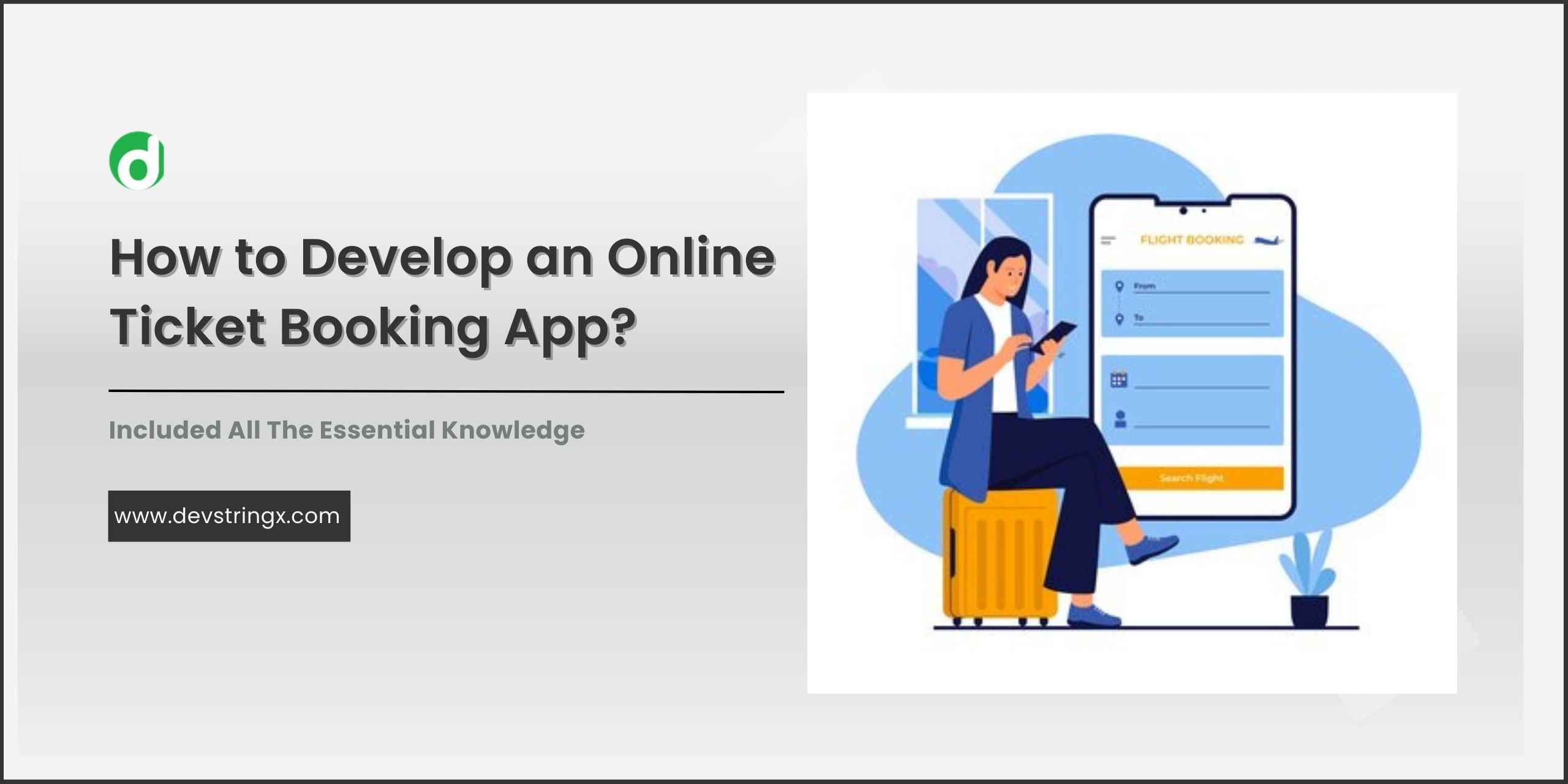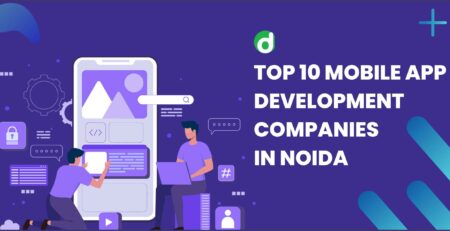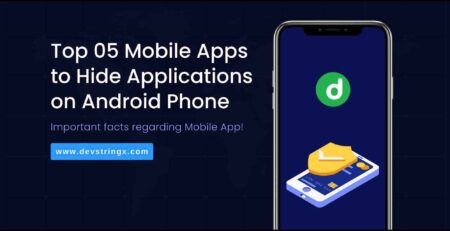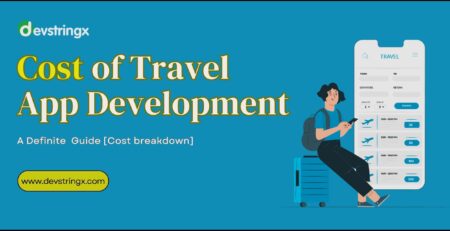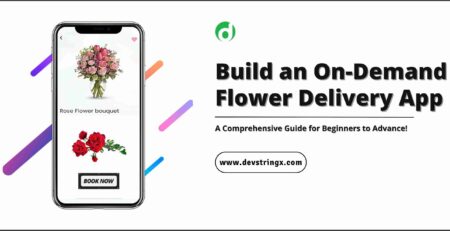How to Develop an Online Ticket Booking System at Low Cost? – DS
Develop an Online Ticket Booking Apps
Online ticket booking apps are software applications that enable users to purchase tickets for various events, such as movies, concerts, sports games, and transportation services, from their mobile devices or computers. These apps are designed to simplify the ticket-buying process and provide users with a convenient way to access information about upcoming events and book tickets online.
These apps typically offer a range of features and functionality, such as real-time availability and pricing information, interactive seat maps, secure payment options, and the ability to store and retrieve purchased tickets electronically. They also often provide users with personalized recommendations based on their past ticket purchases and preferences, as well as access to exclusive discounts and promotions.
In addition to their convenience and accessibility, online ticket booking apps have also helped to reduce the need for physical ticketing systems, which can be time-consuming and costly to manage. By streamlining the ticket-buying process and providing users with instant access to their tickets, these apps have become a popular choice for both consumers and businesses alike.
Understanding The Target Audience and Market
It is essential for the success of any online ticket-booking app. The target audience for these apps can vary depending on the type of events being offered and the specific features of the app. However, generally, the target audience for online ticket booking apps can categorize into the following groups:
-
Event-Goers
These are people who regularly attend events such as movies, concerts, sports games, and other live performances. They are typically tech-savvy and appreciate the convenience of booking tickets online.
-
Travelers
Online ticket booking apps are also popular among travelers who need to book transportation services, such as flights, trains, buses, and taxis. These travelers often require real-time availability and pricing information and value the ability to book and manage their tickets from their mobile devices.
-
Business Professionals
Business professionals often attend conferences, seminars, and other business events, and require a quick and easy way to book tickets for themselves and their colleagues.
-
Event Organizers
Online ticket-booking apps are also designed to cater to event organizers who require a platform to sell and manage tickets for their events. These organizers often require features such as real-time reporting, analytics, and tools to manage their events efficiently.
When it comes to the market, the online ticket booking industry is highly competitive, with several established players dominating the market. Therefore, new entrants need to differentiate themselves by offering unique features and targeting specific segments of the market. Additionally, expanding the app’s reach beyond domestic markets and offering multi-language support can also help to broaden the app’s market reach.
Choosing the Right Platform and Technology Stack
Choosing the right platform and technology stack is crucial when developing an online ticket-booking app. The platform and technology stack should be chosen based on factors such as the app’s features, scalability requirements, security needs, and budget. Here are some popular platforms and technology stacks that can be used for building online ticket-booking apps:
-
Mobile App Development Platforms
For building mobile apps, popular platforms like Android and iOS can be used. Cross-platform app development tools like React Native, Flutter, and Xamarin can also use to build apps that work seamlessly on both Android and iOS devices.
-
Web Development Frameworks
For building web-based ticket booking apps, popular frameworks like React, Angular, and Vue.js can use. These frameworks offer robust features, high scalability, and seamless integration with other technologies.
-
Cloud Services
Cloud services like Amazon Web Services (AWS), Microsoft Azure, and Google Cloud Platform can use to host the app’s backend infrastructure. These services offer high scalability, security, and reliability, as well as cost-effective pricing models.
-
Payment Gateways
Payment gateways like Stripe, PayPal, and Braintree can be integrated into the app to handle secure online payments. These payment gateways offer a range of features such as fraud detection, recurring billing, and support for multiple currencies.
-
Database Technologies
Popular database technologies like MySQL, PostgreSQL, and MongoDB can use to store and manage the app’s data. These databases offer features such as scalability, high availability, and data encryption.
Ultimately, the choice of platform and technology stack will depend on the app’s specific requirements and the development team’s expertise. It’s important to conduct thorough research and consult with experts before making any decisions to ensure that the chosen technology stack is the best fit for the app’s needs.
Good to Read:- A Definite Guide On Travel App Development Cost
Developing the App Features and Functionalities
Developing an app requires careful planning and consideration of its features and functionalities. Here are some steps you can follow to develop your app’s features and functionalities:
-
Identify Your Target Audience
Understanding who your target audience is, their needs, and preferences are essential to determine the features and functionalities that will make your app successful.
-
Define the Problem
Identify the problem your app is solving and what it will bring to the table. This will help you define the features that you should prioritize.
-
Prioritize Your Features
Determine the most important features for your app, based on user needs, cost, and time constraints, and their overall impact on the success of your app.
-
Create a User Flow
Develop a user flow to visualize how users will interact with your app. This helps to identify potential user pain points and refine the features and functionalities accordingly.
-
Build a Prototype
Once you have defined your app’s features and functionalities, build a prototype to test its usability, identify potential design flaws, and improve user experience.
-
Test and Refine
Continuously test and refine your app’s features and functionalities, based on user feedback, analytics, and performance metrics.
-
Launch and Monitor
Once your app is launched, monitor its performance, user feedback, and analytics, to continue refining and improving your app’s features and functionalities.
-
Keep It Simple
The simpler the app’s features and functionalities, the easier it will be for users to navigate and understand. It’s important to avoid overcomplicating the app with too many features that users may not need or use.
-
Ensure It’s Scalable
Your app should design with scalability in mind so that it can handle an increasing number of users and data. This means considering factors such as the app’s architecture, database design, and infrastructure requirements.
-
Be Innovative
To stand out in a crowded app market, consider incorporating innovative features and functionalities that are unique and different from what is currently available. This can help to attract new users and keep them engaged with your app. However, it’s important to balance innovation with usability and user needs.
Payment Gateways Integration to Feedback
-
Integrating Payment Gateways and Security Measures
Integrating payment gateways and security measures are essential for the development of an online ticket-booking app. This involves ensuring that the app is secure and that users’ personal and financial information is protected. It also involves integrating payment gateways that are reliable and secure.
-
Testing and Debugging the App
Testing and debugging the app is critical for ensuring that it functions properly and that users can use it without any issues. This involves testing the app on multiple devices and platforms, as well as identifying and fixing any bugs or issues that arise.
-
Launching the App and Marketing Strategies
Once the app has been developed and tested, it is time to launch it and develop marketing strategies to promote it. This involves identifying your target audience and developing marketing materials that are relevant to them. It also involves using social media and other channels to promote the app and reach a wider audience.
-
Analytics and Feedback for App Improvement
Finally, it is important to use analytics and feedback to continually improve the app. This involves tracking user behavior and identifying areas for improvement. It also involves listening to user feedback and making changes to the app based on their suggestions.
Good to Read:- Top Mobile App Development Companies in Noida
Benefits of Developing an Online Ticket Booking App
- An online ticket booking app provides customers with the convenience of booking tickets from anywhere at any time, without the need to visit a ticket counter or stand in long queues physically.
- Customers can save a significant amount of time by booking tickets online, as they don’t have to spend time traveling to the ticket counter or waiting in line.
- An online ticket-booking app provides customers with increased accessibility to tickets for events, shows, and other activities, regardless of their location.
- An online ticket booking app allows customers to receive real-time updates about the availability of tickets, show timings, and other important information.
- Businesses can reduce their operational costs by automating the ticket booking process and eliminating the need for physical ticket counters and staff.
- By providing customers with a more convenient and accessible way to book tickets, businesses can increase their revenue and profitability.
- An online ticket booking app can enhance the overall customer experience by providing customers with a user-friendly and hassle-free booking process.
- An online ticket booking app can allow businesses to personalize the user experience by offering customized recommendations, promotions, and notifications based on the user’s preferences, purchase history, and behavior.
- An online ticket booking app can provide businesses with valuable data-driven insights into customer behavior, preferences, and purchasing patterns, which can use to improve marketing strategies, pricing, and operations. These insights can help businesses make informed decisions that drive revenue growth and improve customer satisfaction.
Maintain and improve Online Ticket Booking App
Maintaining and improving an online ticket booking app is a continuous process that involves monitoring its performance, identifying areas for improvement, and making updates as necessary. Here are some steps to maintain and improve an online ticket booking app:
-
Monitor App Performance
Continuously monitor the app’s performance using analytics tools to identify areas of improvement. Track metrics such as user engagement, app crashes, retention, and revenue growth.
-
Update the App Regularly
Release new updates frequently to keep the app up-to-date with the latest features, bug fixes, and security patches. Ensure that the updates are compatible with all devices and platforms.
-
Fix Bugs and Issues
Address any user-reported issues and fix bugs promptly to ensure that the app is functioning optimally. Use automated testing tools to detect and fix issues proactively.
-
Enhance User Experience
Continuously gather feedback from users and use it to enhance the app’s user experience. Incorporate user suggestions, simplify the app’s navigation, and improve the app’s performance.
-
Optimize Performance and Speed
Optimize the app’s performance and speed to reduce load times and improve user experience. Use caching, server-side rendering, and other optimization techniques to improve app performance.
-
Ensure Security
Continuously monitor the app’s security and implement the latest security measures to protect users’ personal and financial information. Ensure that the app is compliant with industry standards and regulations.
-
Innovate and Experiment
Stay ahead of the competition by innovating and experimenting with new features and technologies. Regularly explore emerging technologies and trends in the industry to stay ahead of the curve.
Conclusion
In conclusion, developing an online ticket booking app requires a thorough understanding of the target audience, market, and technology stack. The app’s features and functionalities should be carefully planned and developed to meet the needs of the target audience and address their pain points. The choice of the platform and technology stack should be based on the app’s specific requirements and the development team’s expertise. By prioritizing simplicity, usability, and user feedback, the app can be refined and improved over time to deliver a seamless and convenient experience for users.
Ready to turn your app idea into a reality? Contact Us & Hire a skilled app developer today and bring your vision to life!

